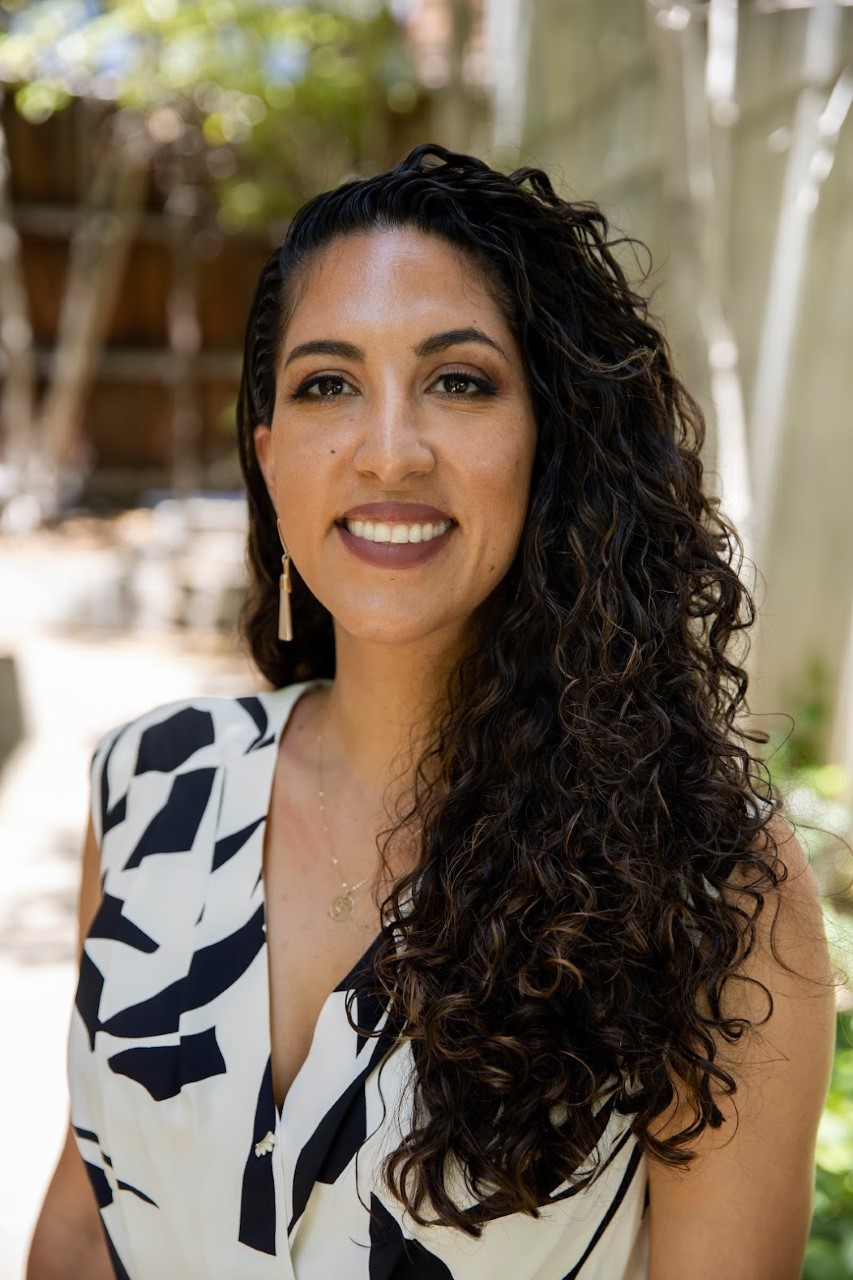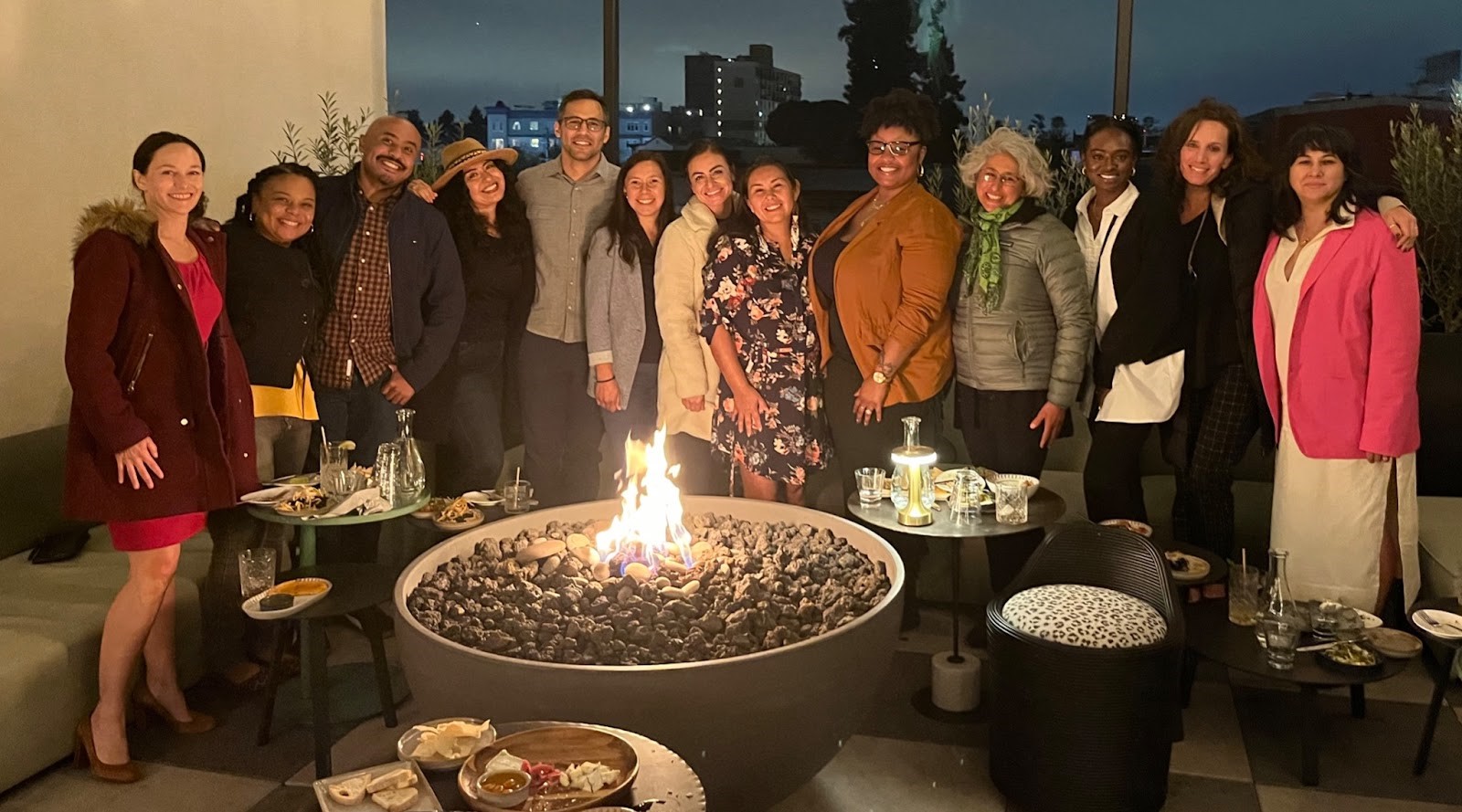CCJFG Member Spotlight: The Libra Foundation

The Libra Foundation Open House, 2019 featuring grantee partners, funder allies and community members. Courtesy of The Libra Foundation.
Interview with maisha quint, Senior Program Officer
Tell us about the priorities of The Libra Foundation.
The Libra Foundation is a family foundation dedicated to funding grassroots justice movements led by and for marginalized communities of color. The Libra Foundation’s guiding principle is that those who are closest to the issues understand those issues best. Impacted communities are not only the most equipped to build solutions, they are the most effective at implementing those solutions. We fund frontline organizations led by and for Black, Indigenous, People of Color (BIPOC) transforming the criminal justice system and advancing environmental and climate justice and gender justice.
How did Libra come to join CCJFG? What do you see as the alignment between CCJFG and Libra?
One of Libra’s board members has been active in CCJFG for quite some time, but the organization didn’t formally join CCJFG as a steering committee member until after I was hired. The questions that CCJFG is asking of itself and of other criminal justice funders are similar to those that we ask at Libra: how can we move more resources and be better partners to the movement for justice? What spaces can we create for other funders to learn together and deepen our understanding of trust-based philanthropy? How can we meaningfully support the leadership, expertise, and experiences of those most impacted by the criminal punishment system as we build new ways to address harm and create safety?
Can you speak specifically about the funding of The Libra Foundation?
Libra funds nonprofit organizations led by and for those with lived experience in the work they are building solutions for, largely groups that are led by and for marginalized communities of color. Our grantees reflect both our current approach to grantmaking and our previous efforts. These are mostly national groups that have an intersectional approach to organizing communities to build progressive social justice movements, but increasingly our grantee partners have included regional and local groups that are part of larger ecosystems of organizing.
In 2017, Crystal Hayling became the Executive Director and strengthened this direction. Under her leadership, Libra is now even more committed to supporting those on the frontlines of social movements, especially those that are collaborating with each other through coalitions and networks. We also fund smaller groups via regranting organizations.
A few examples of our grantee partners are Essie Justice Group, an organization of women with incarcerated loved ones that brings people together through both policy action and collective healing, and Californians United for a Responsible Budget (CURB), a statewide coalition that aims to shrink mass incarceration and shift public spending from policing to human services. For more examples, explore all our grantees and check out examples from our other program areas here.
How is The Libra Foundation responding to the multiple crises of 2020?
As so many have wisely stated, 2020 was and is a portal – a portal, for those amongst us that haven’t been listening to what BIPOC-led justice organizations have been saying – not for years, but for generations – and a portal for those amongst us that thought they were listening, Wherever you are on this spectrum, we know one thing for sure, we all need to listen more deeply, more attentively, with compassion and action.
The coronavirus disproportionately ravaged already marginalized communities of color, especially frontline workers, including nurses, domestic workers, and farmers (particularly women of color), and those that are incarcerated. In March 2020 Libra's board decided to double its annual grantmaking from $25 million to $50 million, increasing support for existing grantees to fuel their critical work supporting base-building, electoral and civic engagement, and COVID-19 response.
The extra judiciary murders of Black people at the hands of police over the summer and the ongoing threat white supremacy places on democracy illuminates what Libra grantee partners have always known. Black activists demanded philanthropy meet this moment by acknowledging that the wealth accumulation that makes philanthropy possible is because of the exploitation and extraction of resources from BIPOC communities and reinvesting that money to brilliant Black-led community groups is imperative. In September, Libra responded to that call by rallying foundations from across the country to establish the Democracy Frontlines Fund, a new initiative to provide sustained support to frontline, Black activists leading the movement to end systemic racism. Curated by a brain trust of women of color with deep experience funding social movements, DFF supports a slate of 10 Black-led organizations and will funnel $36 million to Black activists over the course of three years.
With all of these grants, Libra focused on organizations led by and for BIPOC communities, cut as many burdensome administrative requirements as possible, and followed the wisdom and partnership of grantees and movement advisors.
What grounds you in your work as Senior Program Officer? What grounds the work of The Libra Foundation?
Libra is deeply grounded in our values: humility, honesty, love, trust, and community. We believe that moving money is the floor, not the ceiling. We strive to be partners to the organizations we fund by building real relationships. That means practicing reciprocity, disrupting paternalistic grantmaking practices, honoring each other’s humanity, and organizing more funders to do the same. These are the same values that I led with as a community organizer prior to joining Libra and continue to guide me as one of its Senior Program Officers.
What movement partners inspire you?
Rather than highlight incredible individuals, and there are so, so many, I am constantly inspired by the collective people power of grassroots movements. In philanthropy, we tend to put individuals on pedestals, which undercuts the fundamental nature of what organizing is about. I have been inspired by the millions of people who poured onto the streets in 2020, day after day, under threat of a deadly virus and criminalization, to protest the continued unchecked violence against Black people; to protest unequal access to housing and healthcare; to protect our right to assemble with righteous rage and demand that we begin to build the world we want, now.

